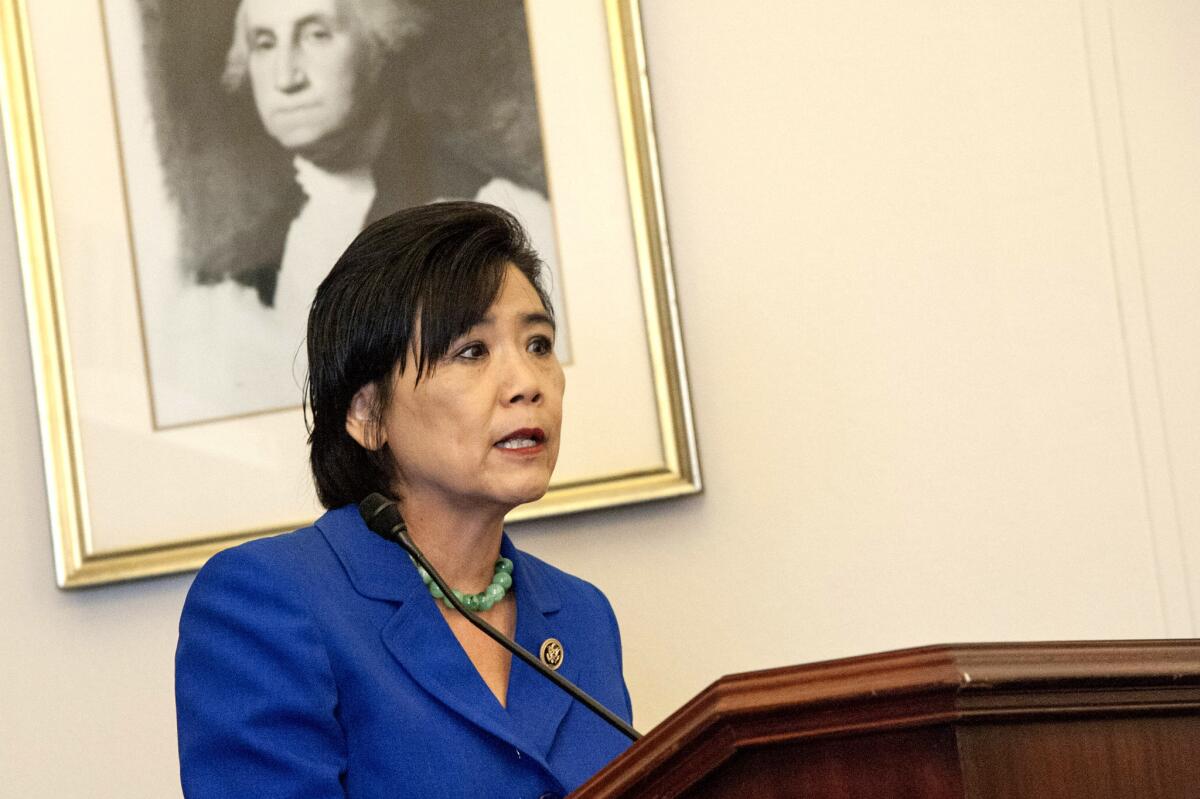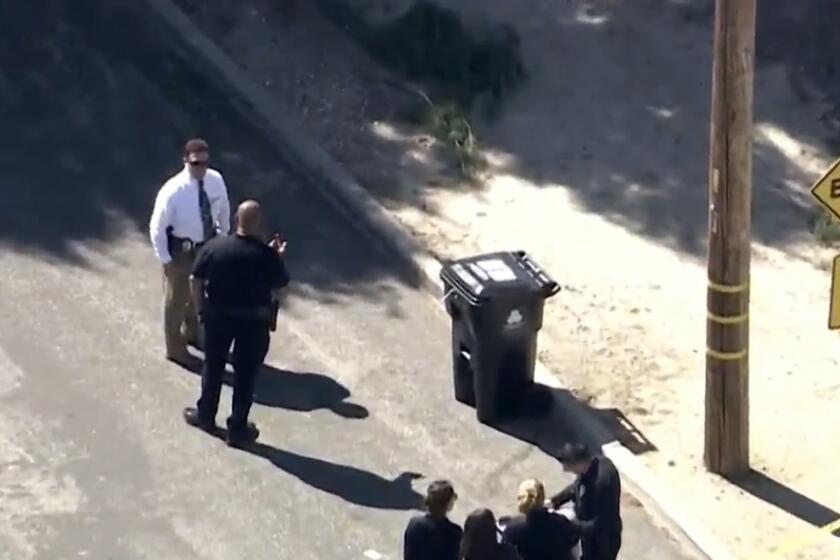Minority contracting program plagued by lax oversight, government watchdog says

The U.S. Small Business Administration has been plagued by poor oversight of its minority contracting program, improperly allowing ineligible firms to win contracts set aside for disadvantaged business owners, according to testimony from a government watchdog at a Tuesday congressional hearing.
The testimony came as lawmakers with a House small business subcommittee asked a Government Accountability Office official about a Times investigation that found more than $300 million in contracts were awarded to businesses whose owners made unverified claims to being Native American.
Seto Bagdoyan, the GAO’s director of forensic audits and investigative services, testified that lax oversight was a systemic problem at the Small Business Administration. As one example, he said, it wasn’t until 2016 that the SBA provided its staff with guidance on enforcing significant changes made in 2011 to its rules governing Native American contracting.
That regulatory change included redefining a Native American as a member of a state or federally recognized tribe.
Before the rule change, business owners had to be Native American but were required to also prove that they held themselves out for some time as Native American and were identified by others as such to be eligible for the contracts. The Times’ investigation identified more than a dozen businesses whose owners based their Native American claims on membership in Cherokee groups with no government recognition and which are considered fraudulent by federally recognized Cherokee tribes.
Rep. Judy Chu (D-Monterey Park) asked whether it was “normal” for an agency to wait five years before advising its staff on how to implement fundamental changes.
“It certainly should not happen for that duration,” Bagdoyan replied.
Chu said she would ask the GAO’s office — a nonpartisan agency that conducts investigations for Congress — to look into whether the SBA has been adequately vetting tribes and their members.
“I have the intention for the GAO to look into this and have a report on it,” Chu told The Times after the hearing, adding that she was shocked to learn how long the SBA took to inform its staff about the 2011 rule change. “Five years, I couldn’t believe it.”
It’s unclear whether the lack of guidance to SBA staff about the rule change resulted in any unqualified firms entering the minority business program after 2011. Contractors identified in The Times’ investigation were certified by the SBA as minority businesses before the 2011 rule change.
But three of those remained certified after 2011, including two that together earned millions of dollars in minority contracts through at least 2018, according to records reviewed by The Times. The SBA previously said those businesses were grandfathered in to the program.
The Times found major failures in the nation’s efforts to help disadvantaged Americans by steering municipal, state and federal contracts to qualified minority-owned companies. In many instances, government agencies have not vetted those companies to protect the interests of taxpayers and legitimate minority contractors.
Since 2000, the federal government and authorities in 18 states, including California, have awarded more than $300 million under minority contracting programs to companies whose owners made unsubstantiated claims of being Native American, the Times investigation found.
The minority-owned certifications and contract work were issued in every West Coast state, New Mexico, Idaho, Texas, four Southern states, and several states in the Midwest and as far east as Pennsylvania.
The Times found that the process for certifying minority businesses was often spotty, with officials accepting flimsy documentation of Native American heritage or unverified accounts that the contractors suffered discrimination because of their ethnicity.
One of the firms received a contract from the federal Bureau of Indian Affairs for work at a Native American university the agency runs.
The SBA has asked its office of inspector general to investigate The Times’ findings. The office conducts inquiries into possible fraud or other wrongdoing.
Chu said the inspector general’s investigation would probably continue for a few more months. She said the committee was determined to “tighten the guardrails in the certification process.”
In applying for minority status, the contractors The Times investigated cited membership in one of three self-professed Cherokee tribes: the Northern Cherokee Nation, based in Clinton, Mo.; the Western Cherokee Nation of Arkansas and Missouri, headquartered in Mansfield, Mo.; or the Northern Cherokee Nation of the Old Louisiana Territory, located in Columbia, Mo.
None of those groups is federally recognized as a legitimate Native American tribe.
For each of the companies, one or more census, birth, marriage or other government records identified the owners’ ancestors as white. The ancestors also do not appear on rolls that government-recognized tribes use to confirm Cherokee citizenship, according to census records and an expert on Cherokee genealogy.
In the wake of The Times’ report, the U.S. Department of Transportation called for a review of all Native American companies in its minority contracting program nationwide to weed out firms whose owners do not belong to state or federally recognized Native American tribes. The review is ongoing.
Meanwhile, state and local agencies have lifted the minority certifications from a number of contractors examined by The Times.
Last year, the newspaper found that a company owned by in-laws of then-House Majority Leader Kevin McCarthy (R-Bakersfield) received more than $7 million in federal contracts because of his brother-in-law’s membership in the Northern Cherokee Nation.
Most of the work awarded to the company, Vortex Construction, was for military projects in and around McCarthy’s district, including projects he supported in Congress.
McCarthy, now the House minority leader, and the brother-in-law, William Wages, said they did nothing wrong. Wages, whose sister is married to McCarthy, said he is one-eighth Cherokee. Census and birth records available to The Times dating to 1850 show no Cherokees among his ancestors.
An official with the SBA’s inspector general’s office told The Times on Tuesday that it had closed the investigation into McCarthy’s in-laws, but declined to elaborate on its findings. The official also said the SBA plans to review its current tribal membership rules for qualifying Native American-owned firms.
More to Read
Start your day right
Sign up for Essential California for news, features and recommendations from the L.A. Times and beyond in your inbox six days a week.
You may occasionally receive promotional content from the Los Angeles Times.








